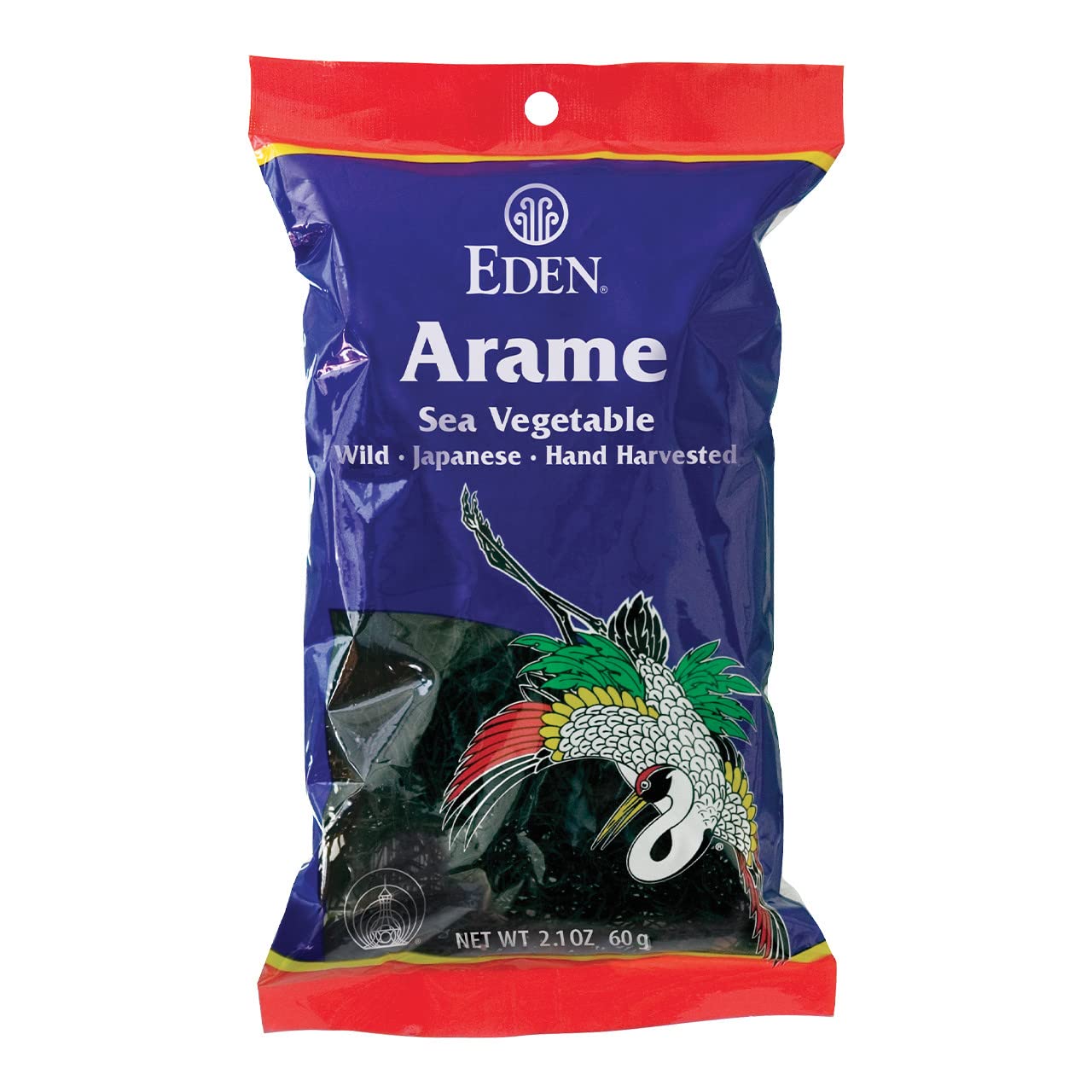You will not be allowed to compare more than 4 products at a time
View compareProduct Description
Wild, hand harvested from Ise Bay, Japan. Add to soups, sautéed vegetables, salad, grain and tofu burgers, and baked goods. | Wild, hand harvested from Ise Bay, Japan. Add to soups, sautéed vegetables, salad, grain and tofu burgers, and baked goods. | Soft, delicate, with a mild taste. Dry, dehydrated, sea weed. Vegan. | A sweet sea vegetable with a pleasing texture. | Arame has been a traditional part of the Japanese diet since ancient times. Eden Arame is low in sodium, low calorie, and fat and cholesterol free, and a good source of fiber. | A principled natural food company, Eden Foods was est. 1968. Healthy soil, long-term organic, non-GMO, practiced growers and handlers; the reliable alternative to commercial food. Uncompromised, pure, most delicious nutrient rich food.
Frequently Asked Questions
- Q: What is Eden Arame and how is it used in cooking? A: Eden Arame is a type of Japanese wild sea vegetable, specifically a seaweed that is hand harvested from Ise Bay, Japan. It can be added to a variety of dishes including soups, sautéed vegetables, salads, grain and tofu burgers, and even baked goods for enhanced flavor and nutrition.
- Q: Is Eden Arame a healthy addition to my diet? A: Yes, Eden Arame is low in sodium, low calorie, and free from fat and cholesterol, making it a healthy option. It is also a good source of fiber and has been a traditional part of the Japanese diet for centuries.
- Q: How should I store Eden Arame after opening? A: To maintain its freshness, store Eden Arame in a cool, dry place, away from direct sunlight. After opening, it’s best to keep it in an airtight container to prevent moisture and maintain its quality.
- Q: Is Eden Arame suitable for vegan diets? A: Absolutely! Eden Arame is 100% plant-based and vegan-friendly, making it an excellent choice for those following a vegan or vegetarian diet.
- Q: What are the environmental practices of Eden Foods? A: Eden Foods, established in 1968, is committed to sustainable practices. They focus on healthy soil, long-term organic farming, non-GMO crops, and responsible handling, providing a reliable alternative to commercial food.


